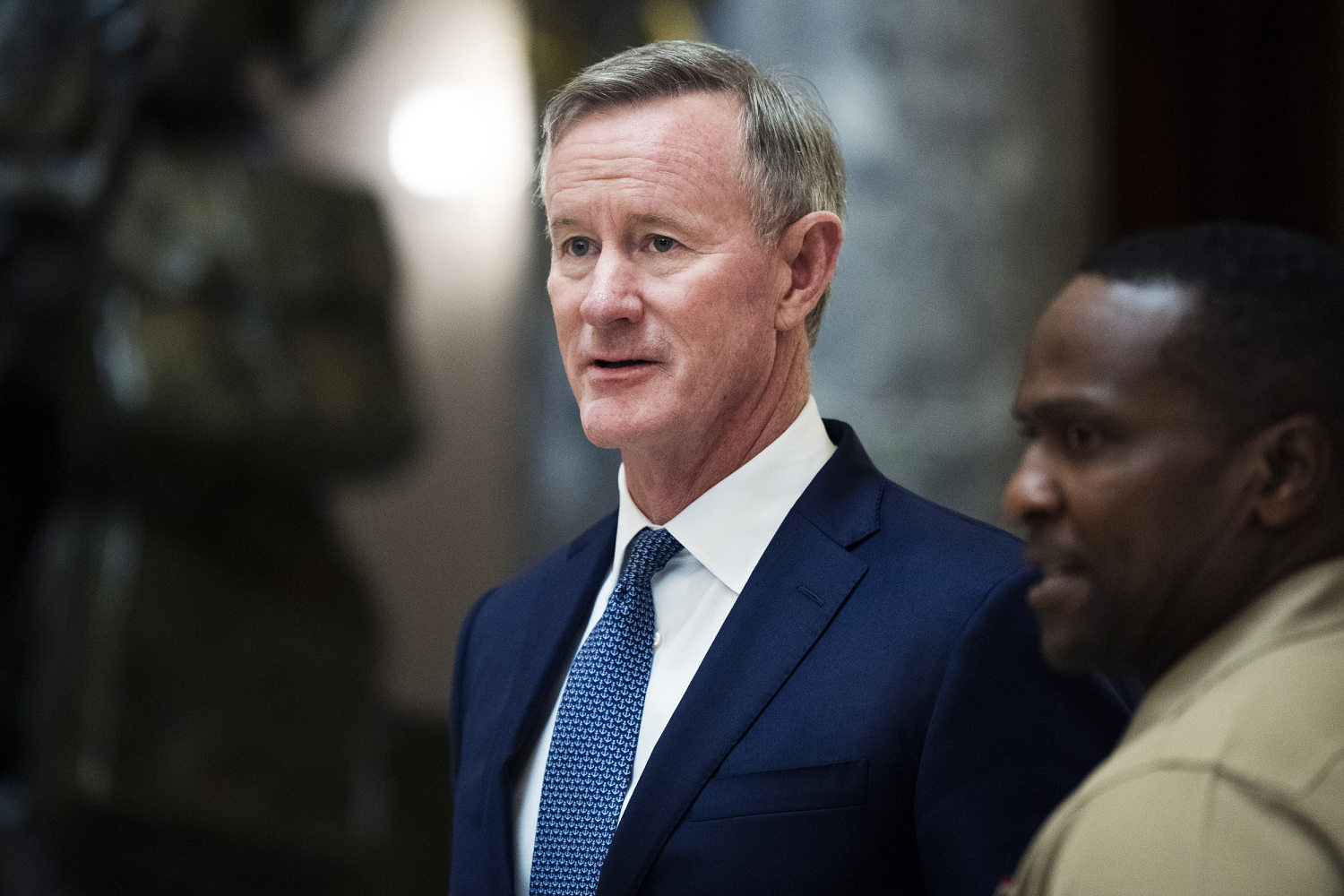
Retired Adm. William McRaven, the former commander of the U.S. Special Operations Command, is perhaps best known to Americans as the Navy SEAL who oversaw the 2011 raid that killed Osama bin Laden. He has also become a highly effective Donald Trump critic, as evidenced by the retired admiral’s latest op-ed in The Wall Street Journal.
The White House is the home of American leadership, where Republican leaders like Thomas Jefferson, Abraham Lincoln, Ulysses S. Grant, Teddy Roosevelt, Ronald Reagan and George W. Bush resided. While each of these leaders had his shortcomings and foibles, none of them consistently violated every principle of good leadership like Donald Trump does. Mr. Trump has no self-control. He lashes out at immigrants, religious groups and military heroes. He lies with reckless abandon. In August, in what was outlandish even by Mr. Trump’s standards, he reposted on Truth Social a picture of Kamala Harris and Hillary Clinton above a crude sexual joke. Just last week he was regaling a crowd about Arnold Palmer’s anatomy. These are things a disturbed 15-year-old boy would do, not the commander in chief, not the man who holds the nuclear codes, not the leader of the free world.
McRaven’s piece didn’t explicitly endorse Vice President Kamala Harris, but the retired admiral said the Democratic nominee “won’t threaten the press, demean immigrants, mock those who have died for the country, break with our allies, or undermine the Constitution.”
He concluded that he couldn’t vote for Trump.
I’ve long been fascinated by McRaven’s gradual transition from a retired military leader, content to leave political fights to others, to someone who felt compelled by Trump’s antics to enter the political debate in earnest.
Just weeks into the Trump era, for example, the retired admiral tipped his toes in these waters, describing Trump’s condemnations of his own country’s free press as possibly “the greatest threat to democracy in my lifetime.”
About a year later, after the then-president said he would revoke the security clearances of some of his critics, McRaven wrote an op-ed for The Washington Post urging Trump to revoke his security clearance, too — explaining that he would consider it “an honor” to stand alongside those “who have spoken up against your presidency.”
In 2019, McRaven wrote another piece, this time for The New York Times, reflecting on the president’s willingness to break faith with American allies and American principles. He added that “the fate of our Republic” may depend upon replacing Trump as quickly as possible.
In early 2020, McRaven wrote another Washington Post op-ed, which concluded, “As Americans, we should be frightened — deeply afraid for the future of the nation. When good men and women can’t speak the truth, when facts are inconvenient, when integrity and character no longer matter, when presidential ego and self-preservation are more important than national security — then there is nothing left to stop the triumph of evil.”
Four months later, the retired Navy admiral explained, “President Trump has shown he doesn’t have the qualities necessary to be a good commander in chief.” On the anniversary of D-Day, McRaven contrasted Trump’s style with the kind of qualities from earlier wartime leaders. “As we have struggled with the COVID pandemic and horrible acts of racism and injustice, this president has shown none of those qualities,” the admiral said. “The country needs to move forward without him at the helm.”
In August 2020, McRaven rang the alarm once more, positioning himself as one of the nation’s most unexpected, most forceful, and most credible Trump detractors. In a Washington Post op-ed, he argued persuasively, “Today, as we struggle with social upheaval, soaring debt, record unemployment, a runaway pandemic, and rising threats from China and Russia, President Trump is actively working to undermine every major institution in this country.”
In October 2020, McRaven wrote another Wall Street Journal op-ed, explaining why he voted for then-candidate Joe Biden.
A year later, he compared Trump to “a disturbed 15-year-old boy.”
In 2018, asked for a response to the series of criticisms, Trump said, “I don’t know McRaven.” Evidently, McRaven knows him all too well.
This post updates our related earlier coverage.
